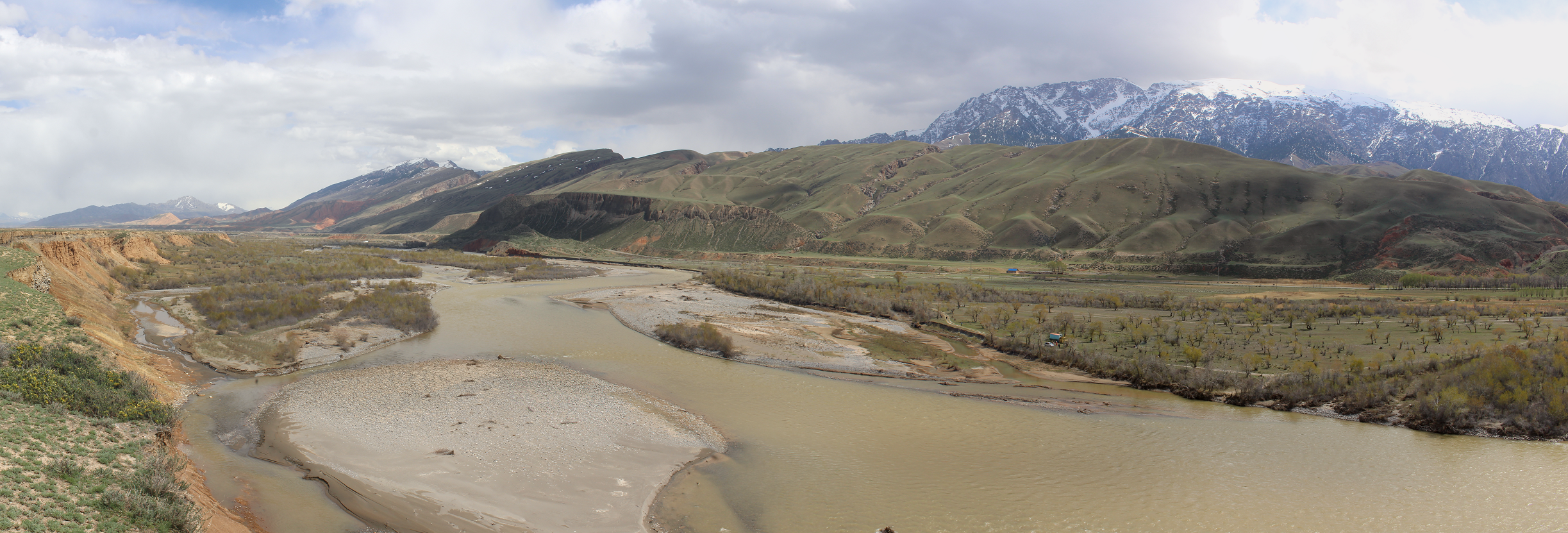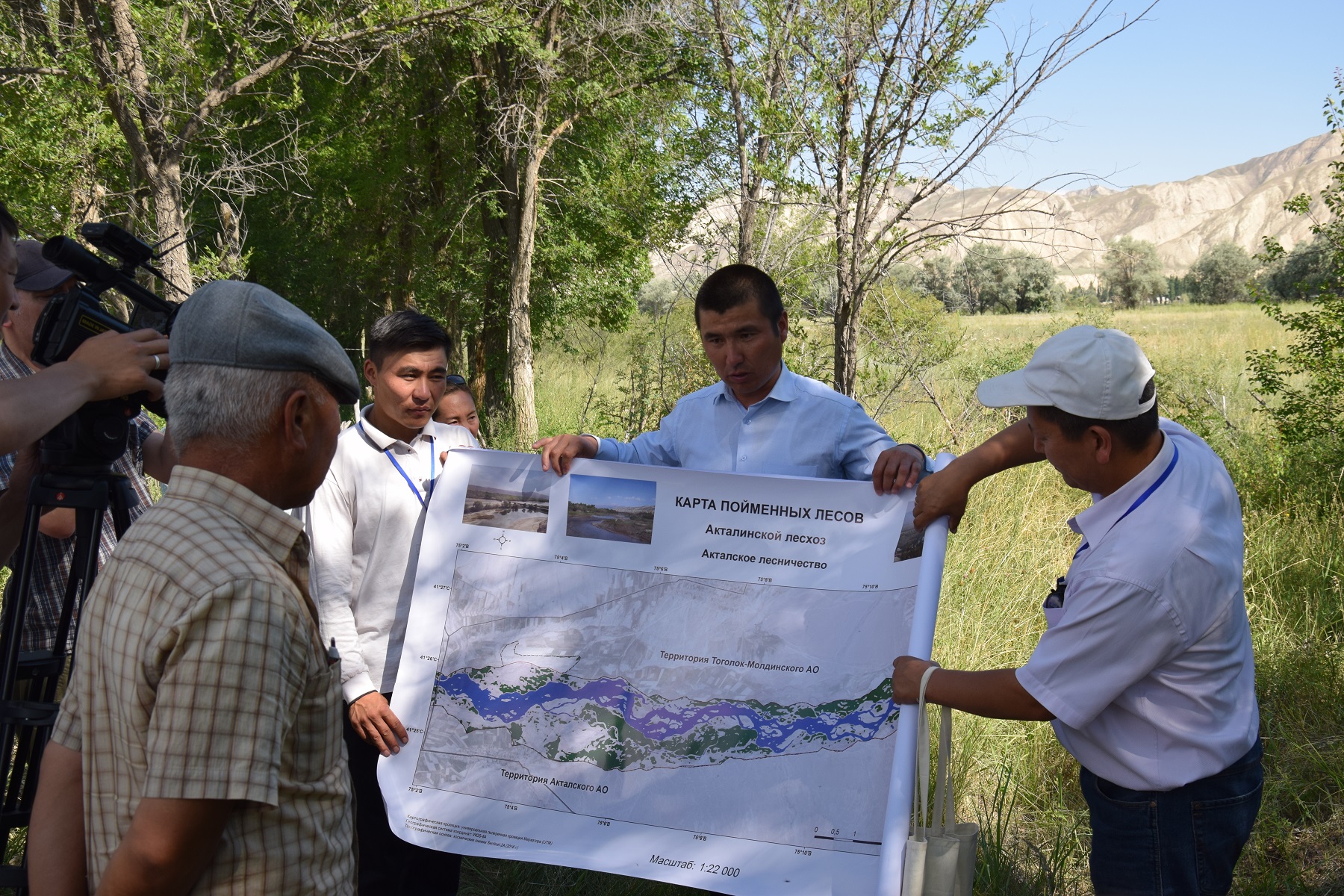Affordable and clean energy
Good health and well-being
Life on land
Climate action
Sustainable cities and communities
Partnerships for the goals
Coordinator: Katholische Universität Eichstätt-Ingolstadt, Angewandte Physische Geographie und Aueninstitut Neuburg
Contact: Prof. Dr Bernd Cyffka
Address: Ostenstraße 14, 85072 Eichstätt, Germany
Tel.: +49 8421 93-21392
E-Mail: bernd.cyffka(at)ku.de
Project partners in Germany:
- Technische Universität München
- Technische Hochschule Ingolstadt
- Hochschule für Nachhaltige Entwicklung Eberswalde
- ÖKON – Gesellschaft für Landschaftsökologie, Gewässerbiologie & Umweltplanung mbH, Kallmünz
- CitrinSolar GmbH Energie- und Umwelttechnik, Moosburg
Project partners in Kyrgyzstan:
- Naryn State University, Naryn
- Kyrgyz State University for Construction, Transport and Architecture, Bishkek
- World Agroforestry Centre, Central Asia Office, Bishkek
- Eco-Consult LTD, Naryn
- Kyrgyz Soil Science Society, Bishkek
- Municipalities of Aktal and Emgek-Talaa
- Forest Administration of Naryn and Aktalaa
Preservation of Selected Ecosystem Services in the Floodplains of the Naryn River (Kyrgyzstan)
The conservation of alluvial forests along the Naryn River in Kyrgyzstan is the focus of the international and interdisciplinary project titled "ÖkoFlussPlan". The three-year project involves partner institutions from Germany and Kyrgyzstan and has the objective of maintaining the alluvial forests of the Naryn and providing and implementing sustainable energy resources for the local population. In order to reduce the current utilisation pressure, alternatives are being developed for harvesting wood from alluvial forests. In addition, modern technologies for the production of renewable energies and the efficient use of energy are being applied.
Preservation of natural ecosystems and sustainable energy production
The alluvial ecosystems along the Naryn River in Kyrgyzstan are still in a largely natural state. A natural drainage regime ensures high dynamics with high biodiversity of the alluvial forests. For the local population, they provide important ecosystem services, such as the provision of firewood and grazing land, recreational areas or protection against erosion. However, the use of forests as a timber supplier and grazing is threatening the survival of forests. In addition, a barrage hydropower cascade is planned on the upper reaches of the Naryn that is endangering the natural dynamics of the river system and its biodiversity. There is therefore a trade-off between securing the energy supply of the local population, developing the country through hydropower development and preserving natural ecosystems, their services to humans and their biodiversity.
The overall goal of ÖkoFlussPlan is to preserve the alluvial forests along the Naryn and to offer and implement sustainable solutions for the local population. For this purpose, the alluvial forests are being gathered in a work package and their condition will be analysed in order to identify areas particularly worth protecting and possible development potential. In order to reduce utilisation pressure, alternatives are also being systematically developed for harvesting wood from alluvial forests. On the one hand, short rotational plantations (planting of fast-growing trees) will be established, which can be a substitute for the wood from the forests, and on the other, modern technologies for the production of renewable energies and the efficient use of energy will be applied.

Project implementation with strong partners
The project is sub-divided into six work packages:
- Project management
- Hydrology
- GIS & remote sensing
- Ecology
- Renewable energy
- Environmental education, capacity building & stakeholder dialogue
Some partners are involved in several of these work packages, thereby strengthening the networking of the packages. The Hydrology, GIS & remote sensing and Ecology work packages will determine the current state of the ecosystems, identify disruptive factors and develop forecasts for the developments. Recommendations for sustainable land and water management can be derived from this. The Renewable energy, Environmental education, capacity building & stakeholder dialogue and GIS & remote sensing work packages will implement short rotational plantations and lighthouse projects with innovative sustainable technologies. After identifying the potentials of replacing unsustainable fuels, recommendations can be made for efficient and climate-friendly energy generation. The dialogue with the stakeholders, for example during a workshop and a summer school, will guarantee close involvement of the local population from the beginning and implement the exchange of knowledge between the German and Kyrgyz partners. The results from environmental research and the identification of alternatives will be summarised in "Recommendations for the Sustainable Management of the Energy Supply and Environmental Resources" and handed over to relevant stakeholders in a closing event.
Sustainable environmental management after the project is complete
After the end of the project, the existing plantations can continue to be operated by the local forestry authorities and new plantations can be created with the findings.

In addition, ÖkoFlussPlan will evaluate the potential for the use of technical facilities for the generation and efficient use of renewable energies, identify market opportunities for their development and communicate the results to the relevant decision-makers. In the longer term, this can pave the way for the establishment of technical facilities in the project region and open up market potential. All results will help the authorities to align their activities towards sustainable development. The research on the floodplain ecosystems will collect basic data, which will form the basis for further monitoring and scientific investigations and be indispensable for environmental management against the backdrop of planned barrages. In addition to the training of scientists during the project period, a network will be established that can survive beyond the project's lifetime. In addition, the authorities will be given recommendations for future sustainable drainage management of possible barrages in order to be prepared for future developments. All scientific knowledge can contribute, among other things, to an improved understanding of the natural dynamics of large rivers and thus their protection and opportunities for renaturation in Europe as well.
ÖkoFlussPlan: Start of Construction Works For “Real Lab” in Kyrgyzstan to Showcase Use of Solar Energy and Sustainable Insulation Materials

ÖkoFlussPlan: Kyrgyz village develops own strategies to protect alluvial forest

ÖkoFlussPlan: Sequential roadmap to reduce residential space heating demand of rural Kyrgyz house

ÖkoFlussPlan carries out quantitative household survey in Kyrgyzstan

ÖkoFlussPlan kick-off in Kyrgyzstan

